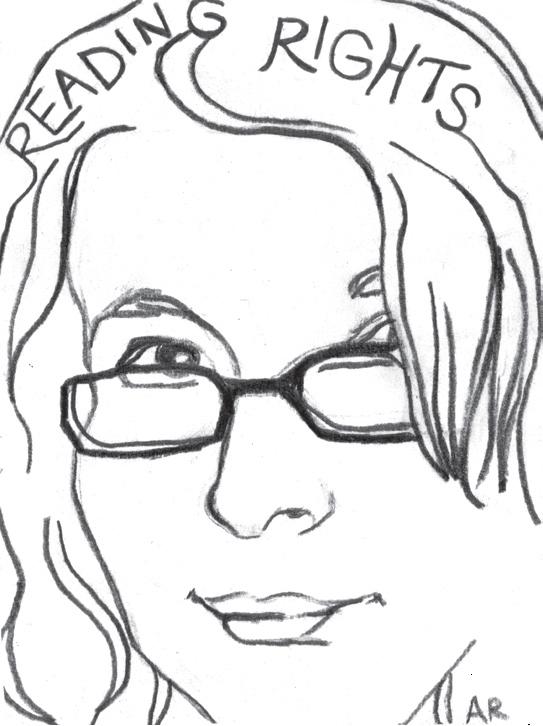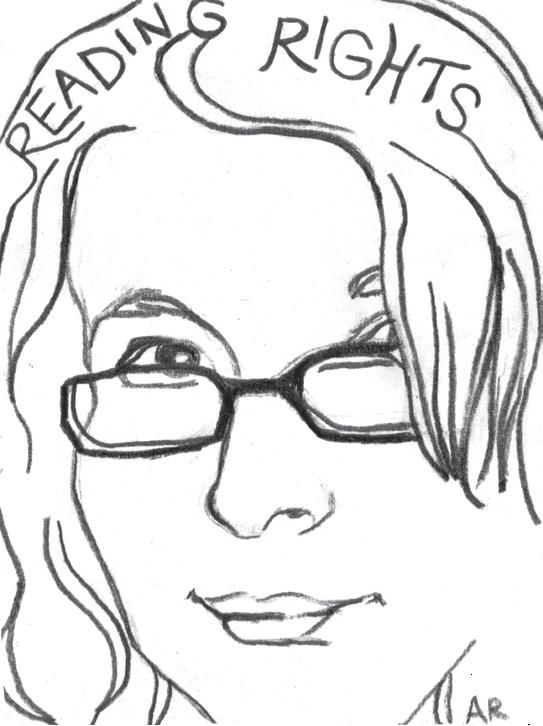
(Drawing by Annie Raccuglia)
There’s a great line in an episode of “It’s Always Sunny in Philadelphia” when Charlie, the dim and odd one, announces that he wrote a musical and wants to stage it. In response, Mac, a self-proclaimed bad boy, asks, “Who are we doing it versus?” He wants to know because there doesn’t seem to be a point in his mobilizing to perform in a musical if it isn’t proving some point or discrediting something. Every time I sit down to write this column, I wonder who I should do it versus.
So I scan the internet, looking for infuriating information, for an angry comment on a blog. It’s usually something I think I’ll be able to use to infuriate others. Of course, if you’ve been following, there hasn’t been much of a trend toward dialogue. I continue to write in isolation, only catching glimpses of my participation in some greater dialogue through my moments of being against something that other people are writing about.
Being for something is probably just as detrimental because it allows people to nod along in assent and get on with their days. As a result, it looks like I’m writing about mostly nothing to people who are mostly like me, like I’m writing about things that are kind of in that hazy, outside realm, things that don’t impinge on the every day.
I checked out a new edition of some of Kafka’s stories from the library along with the new Cher film, “Burlesque.” I’m sure you can guess what I’ll be turning my attention to first. And the week after that, I’ll write some crazy column about how art is stupid if it’s just entertainment, or I’ll say a little something about the concept of “double access,” which reveals to students like us that it’s a privilege to be able to move between high and low culture. We can read celebrity news on some blog called Celebrity Trash and 10 minutes later sit in a class reading “Madame Bovary.”
The article, though, would be sparked by the guilt I feel for watching “Burlesque” and not reading “In The Penal Colony.” At the same time, no one is going to be mad at me for making that stupid decision. How could I be ostracized for making the decision that everyone else would make, too? The idea of the Lawrence Bubble has fallen out of favor and there are student groups who combat exactly the thing I’m talking about, not in terms of the arts so much but in terms of community involvement.
But that involvement doesn’t translate into wider ranges of opinions, more interesting dinner conversations that involve debate over topics that matter to us. We’re all a kind of Oscar Wilde, saying witty things, waving away things we don’t want to hear with a perpetual smirk on our faces. It makes me tired just thinking about it.
Who will be peeved when you pull out your phone to text in class? No one. We’re all doing it. And if it comes up in a conversation, there’s a joke made, or a flimsy excuse along the lines of: “The class is boring. Nobody talks.”
We are versus no one, so we stagnate, wallowing in a confidence that lets us think that we will always be around those who think and act like us and that the swell of something that resembles a public opinion will kind of carry us along.

